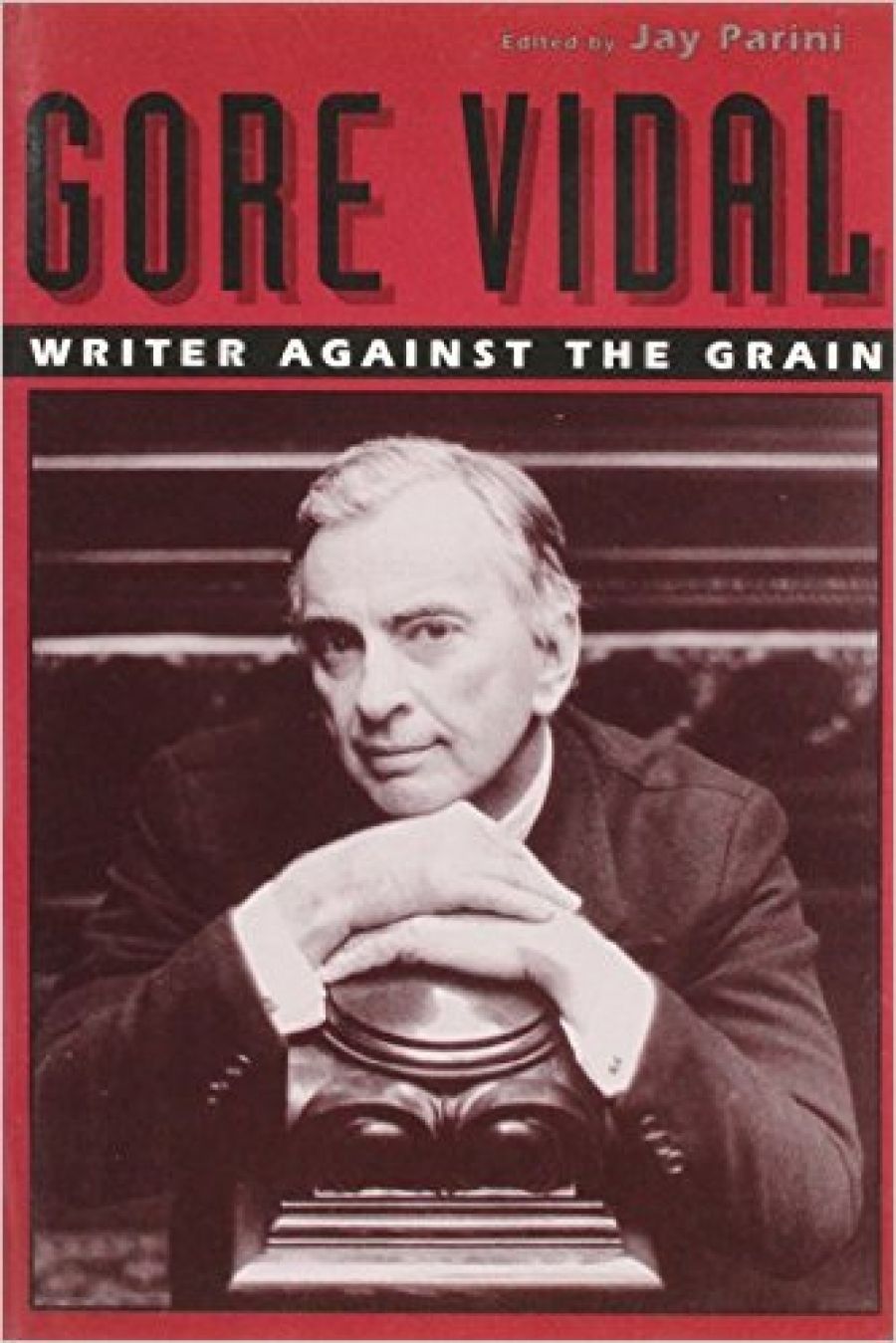
- Free Article: No
- Contents Category: Biography
- Review Article: Yes
- Online Only: No
- Custom Highlight Text:
Jay Parini intended this collection of critical essays to be a Festschrift for Vidal’s sixty-fifth birthday in 1990. Its lateness may suggest he found some difficulty in obtaining suitable material, and account for the mixed quality of the essays. There is, however, so little available about Vidal that we must be grateful for this collection, which contains previously unpublished material and reprints some essays which would otherwise be difficult to trace.
- Book 1 Title: Gore Vidal
- Book 1 Subtitle: Writer against the grain
- Book 1 Biblio: Andre Deutsch, $36.95
Far from being old-fashioned, many of Vidal’s works have been forerunners. Novels such as Messiah, Kalki, Duluth, and Myra Breckinridge have pointed the way to new forms of writing, while early works such as Williwaw and The City and The Pillar were, respectively, one of the first novels of World War II and one of the first realistic, sympathetic treatments of homosexuality. Vidal’s fictional histories ranging from the ancient world (Julian and Creation) to the six works on the historical development of the United States (Burr, Lincoln, 1876, Washington DC, Empire, and Hollywood) provide insights into the mechanics of the growth of American imperialism which are not only informing and entertaining but morally brave. He displays the same courage in the public arena. When he stood for the Senate in 1982 he advocated taxation of churches, withdrawal from interference in the internal politics of other nations, improved education, and curbing of the huge corporations ... policies unlikely to endear him to the power élites of the United States. Like Eugene McCarthy he captured the imagination of liberals and the young and ran a creditable second in the election.
Vidal is, however, not merely a literary innovator and stormy petrel of politics. He is a meticulous craftsman who does his own research, unlike Michener, for instance, whose megalithic monstrosities are patched together with the aid of research teams.
Some of the essays in Gore Vidal are excellent; Richard Poirier’s ‘Vidal’s Empire’; Italo Calvino’ idiosyncratic ‘Imagining Vidal’; James Tatum’s ‘The Romanitas of Gore Vidal’ and our own Heather Neilson’s lucid and insightful ‘The Fiction of History in Gore Vidal’s Messiah’. On the other hand, some are foolish or poorly written. Robert Boyers contributes a vicious exercise in prejudice and denigration; Catharine Stimpson is postmodern (i.e. muddle-headed), and Stephen Spender contributes his usual third-rate thinking and second-rate writing.
Nor is the editing impeccable. Considering the four-year gestation period of this work Jay Parini might have taken more care with fact and form. Errors abound (‘to’ for ‘too’, ‘Eldredge’ for ‘Eldridge’, ‘expatriot’ for ‘expatriate’, ‘exhuberant’, ‘pretentions’, ‘subtley’). Heather Neilson, an Australian, is noted as being ‘from New Zealand’.
Vidal deserves better.


Comments powered by CComment